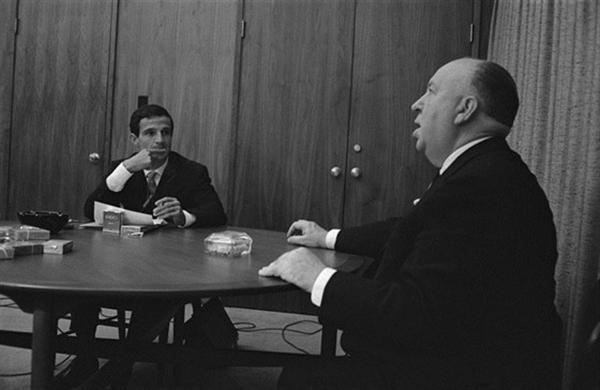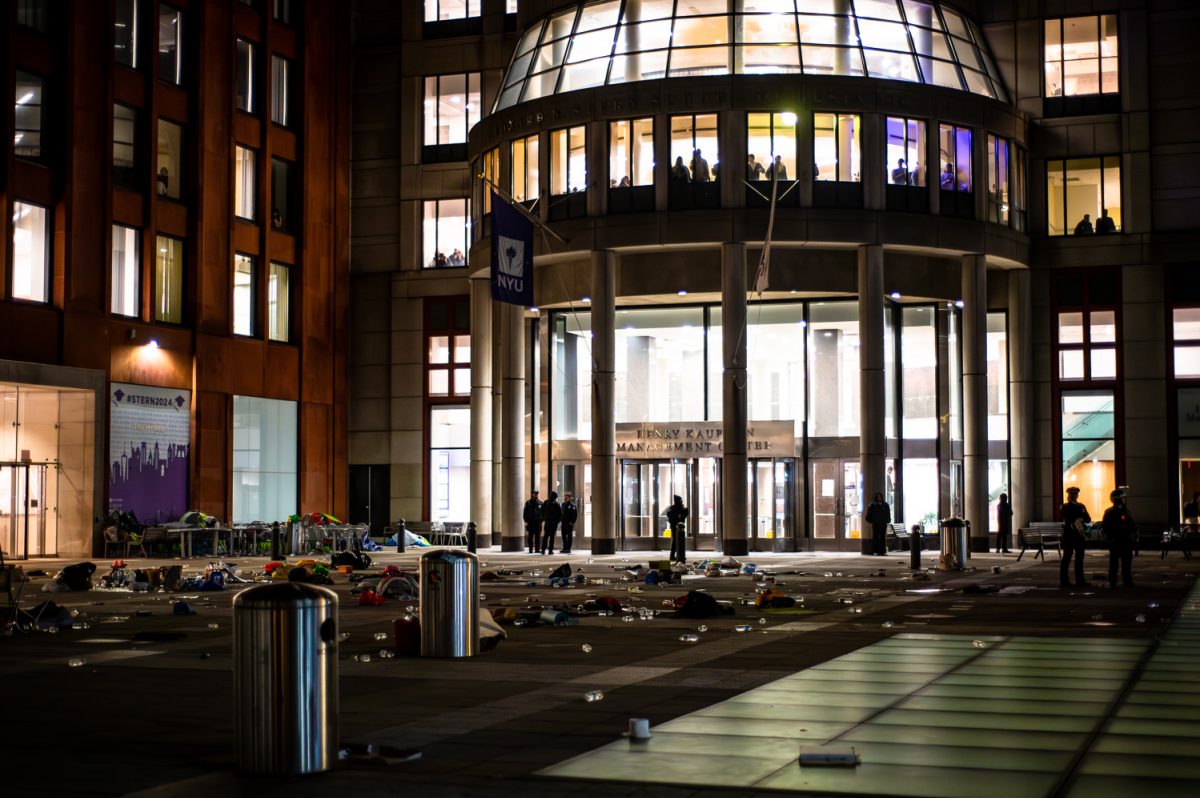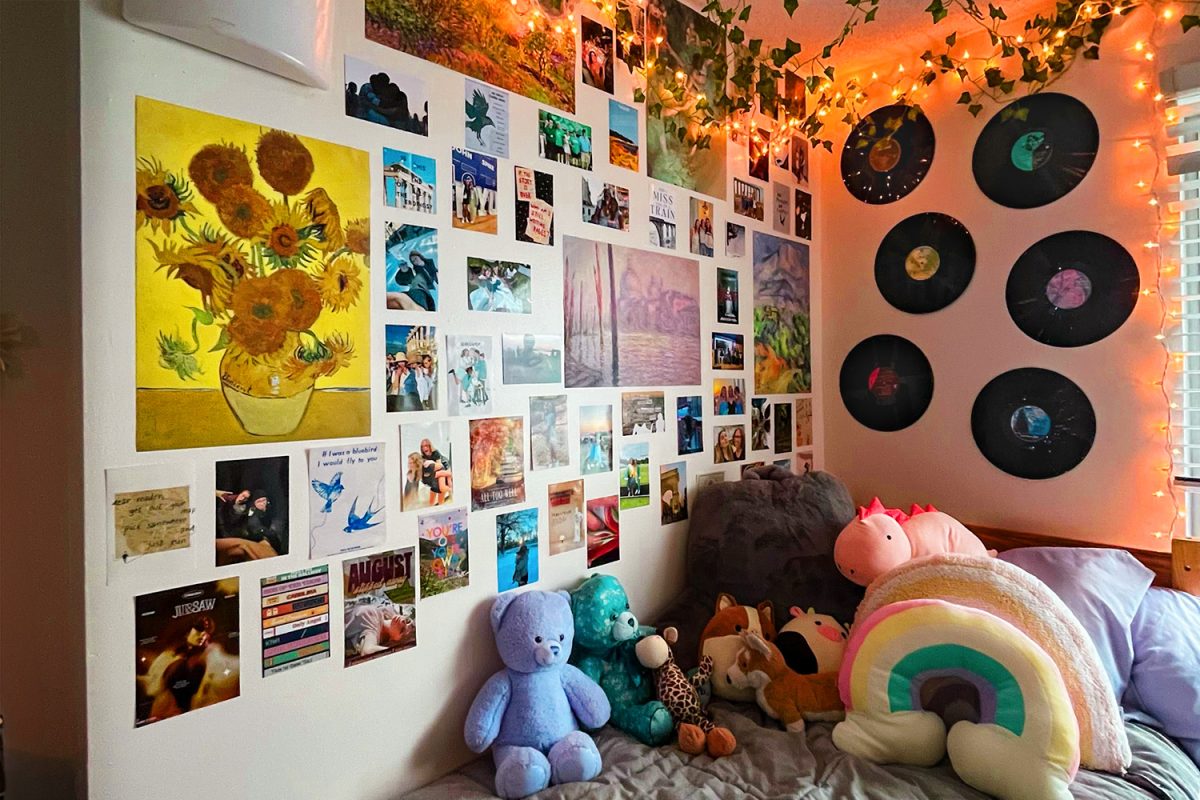Kent Jones discusses his new film ‘Hitchcock/Truffaut’

Director Kent Jones has released his newest film, “Hitchcock/Truffaut,” a documentary about the 27 hours the two spent together.
December 3, 2015
In 1962, Alfred Hitchcock and Francois Truffaut sat down in a windowless room and talked, a conversation which would turn into a 27 hour discussion of Hitchcock’s film work. Documentarian Kent Jones worked his way through the 27 hours of taped conversations between Truffaut and Hitchcock to craft his documentary “Hitchcock/Truffaut.” In the film, Jones mixes archival footage, film clips and interviews with contemporary directors including Martin Scorsese and Wes Anderson to reveal Hitchcock’s masterful techniques and his enduring influence on the art of cinema. WSN sat down with Jones to discuss his film.
WSN: What is the appeal of documentary as a genre, and what in particular was the appeal of “Hitchcock/Truffaut” as a story?
Kent Jones: I don’t know whether the documentary holds any appeal to me intrinsically speaking as a genre. It’s a vehicle, you know? It’s a particular form, but I guess that given the fact that I have made a few of them, I must like it, so I don’t know, I mean, the documentaries that I make are based on archival material and clips and that kind of things: letters, photographs, et cetera. I like the idea of having different materials like that that you can keep and where it’s all about recombining them in different ways to build the structure and the tension. I like the way that in the case of this film, I was kind of building it as I went along. You know, I didn’t write it in advance. I prepared for it, I looked through all the tapes and everything, but I wanted to sort of build it where the energy was between the two of them and among all the filmmakers I interviewed and how their interactions with Hitchcock and Truffaut made what they were talking about work.
WSN: How would the film world as we know it be different without Hitchcock?
KJ: I think that he is one of the four or five people who is fundamental to the art of cinema itself. It’s like he was born with the art form. He was one of the people who helped create it, that’s why whenever Truffaut is asking the questions about what the interest was of a film, he doesn’t really have an answer because of course for someone who started what he did, that wasn’t really a question. So, I think that for me when I was a kid, I had pretty much the same experience that David Fincher did although he was perhaps a little bit younger when he got the books than I was, but it was like that book, “Cinema According to Hitchcock,” opened the door to what being a director was, to what filmmaking was and still is. When people talk about his influence, I would say that it’s there in movies even when it doesn’t appear to be influenced. It’s such a tricky thing to begin with and so it’s sort of like he, D.W. Griffith, and Jean Renoir, all of these people, the moral problems that their films that have been raised aside, his presence in movie making is just there. He’s fundamental to what the art of cinema is. Even now when it is pretty common to go to the movies and see something, I’m talking about the multiplex, like it could have been directed by somebody who had never seen a movie before. He’s just there at the core of what the art form is.
WSN: How did you choose what you wanted to incorporate into the film? Considering there were 27 hours of tapes, that’s a lot of dialogue that you had to choose from.
KJ: There’s no iron-clad criteria, it’s just instinct and where my individual pre-elections lie and where I felt an emotional energy and sort of a concision I guess. Sometimes something is really interesting, but it really would have required like forty-five minutes to play out. So I wanted to do something that was very concise. Also, there are things that are fascinating but are just for one reason or another. I just couldn’t really see a way in visualizing them with clips or something. The rhythm or speaking is so different. The rhythm of things is different on the screen.
“Hitchcock/Truffaut” is currently running at the Film Forum.
Email Imara Ikhumen at [email protected].










































































































































